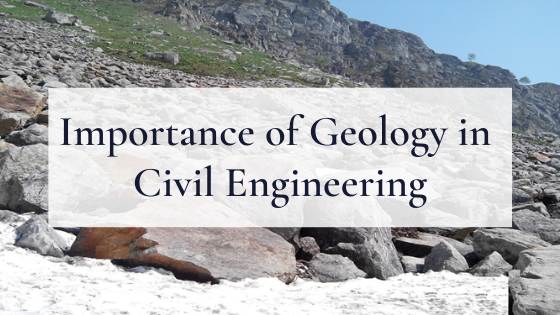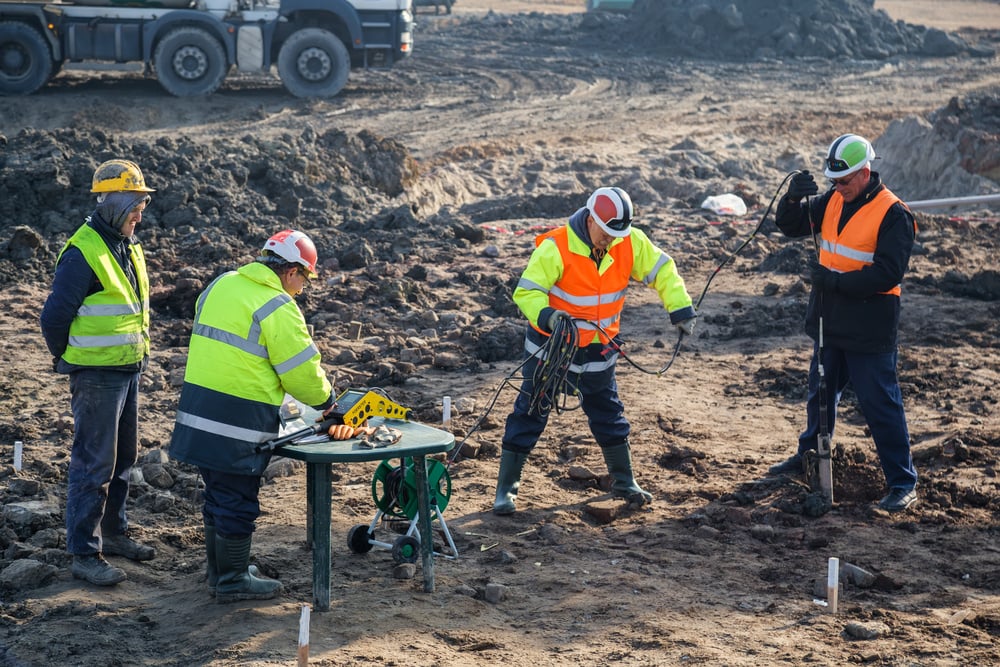Some Known Questions About Geotechnical Engineering For Construction Projects.
Some Known Questions About Geotechnical Engineering For Construction Projects.
Blog Article
The Geotechnical Engineering For Construction Projects Diaries
Table of ContentsGetting The Geotechnical Engineering For Construction Projects To WorkSome Ideas on Geotechnical Engineering For Construction Projects You Should KnowWhat Does Geotechnical Engineering For Construction Projects Mean?The smart Trick of Geotechnical Engineering For Construction Projects That Nobody is Talking AboutHow Geotechnical Engineering For Construction Projects can Save You Time, Stress, and Money.
As a result, during the investigation, it is essential to drill at the needed deepness and the called for variety of holes according to the recommendation of the Canadian Structure Layout standard. Often, the proprietor could conserve some Geotechnical Investigation cost however wind up spending greater than the expected during the building and construction cost.The obligations of the geotechnical consultant entail offering material screening for construction assistance. Geotechnical Engineering for Construction Projects. Geotechnical designers evaluate all the field examination records to ensure that building and construction is taking place as per the job requirements. During building and construction, a confirmatory examination for soil compaction is done on-site to make sure that no future settlement occurs
After the concrete is poured -7 days and 28 days- examinations are performed on concrete samples collected from the website to guarantee that the concrete put fulfills the layout requirement. Asphalt core is taken after the Asphalt is laid and compressed to confirm that it satisfies the design standard. All laboratory test reports are analysed by the Geotechnical Designer to ensure that it satisfies the job requirements.
Geotechnical Engineering For Construction Projects Things To Know Before You Get This

Geotechnical engineering plays an essential role in making sure the security of building and construction projects. Discover just how it affects layout and general job success. Geotechnical design is an important branch of civil engineering that concentrates on understanding the practices of planet materials, such as soil and rock. It involves evaluating subsurface conditions to ensure that a structure's structure or framework is secure and protected.

For a reputable foundation and a smooth building procedure, depend provide the proficiency you require. Call to obtain expert recommendations and geotechnical services tailored to your next task.
What Does Geotechnical Engineering For Construction Projects Mean?
When beginning on a land development task, understanding the ground underneath your feet is as critical as the structures you intend to develop above it. Our Geotechnical Design group evaluate the ground, ensuring it appropriates for the suggested development while giving you with the details called for to meet your task objectives.
Geotechnical Design looks at the formation of the ground, as it is the foundation for all jobs. Where structures need to be developed with respect to the ground problems; ground conditions (e.g., soft ground) might call for enhancing depending upon the dimension of the intended framework. Prior to building, you need to learn about the groundwater, soil structure, and liquefaction probability of your land.
For sites that are not connected on the local authority framework additional site investigations would certainly be needed to give technical inputs for on-site stormwater and wastewater. We have actually experienced Geotechnical Engineers based in each workplace, supporting your geotechnical needs nationwide. Get to out to us to discuss exactly how we can support your following job.
These records are customized to meet the details requirements of a job and include layout specifications and advice for the building of a series of manufactured structures. Along here are the findings with providing consultancy services covering locations such as slope security and load-bearing capabilities for different materials, these designers undertake r & d activities to enhance methods, equipment, products expertise and evaluation covering whole lifecycles.
Our Geotechnical Engineering For Construction Projects Statements

Prices of pay generally raise as your understanding and abilities grow, with standards aiming to a graduate beginning income of in between 18,000 and 28,000 per year in the UK. This rises to 26,000 to 36,000 with a few years of experience and then reaching 40,000 to 60,000+ for senior, legal or master engineers.
With the ideal application it is feasible to understand the profession and gain entry to a difficult yet gratifying and vital career. A rock hound would certainly require to re-train to end up being a geotechnical designer, although there is plenty of cross-over in between the 2 careers, which can make this much easier - Geotechnical Engineering for Construction Projects. Geologists require to have an understanding of dirts, rocks and various other products from a scientific viewpoint, while geotechnical engineers story their expertise of matters such as dirt and rock mechanic, geophysics and hydrology and apply them to design and ecological tasks
When starting out, these engineers will certainly often tend to deal with less complex tasks, developing up knowledge and experience all set for more difficult work later on. Geotechnical engineers have a tendency to specialise in certain areas as they grow in experience, concentrating on particular facilities such as trains, roads or water. These designers also work with renewable resource, offshore and onshore oil and gas, nuclear power, and a lot more.
The Definitive Guide for Geotechnical Engineering For Construction Projects
The time taken to come to be a geotechnical engineer depends on where you are based, where you study and what level of education and learning you want to obtain before getting in the work environment. Generally-speaking it takes 3-4 years to reach the basic demands to start a profession as a geotechnical designer.
These operations enable professionals to examine a host of dirt auto mechanics consisting of weight, read this post here porosity, void-to-solid particle ratio, permeability, compressibility, optimum shear toughness, birthing capability and deformations. If the framework requires a deep structure, designers will certainly make use of a cone penetration test to estimate the quantity of skin and end bearing resistance in the subsurface.
When analyzing an incline's equilibrium of shear stress and anxiety and shear toughness, or its capacity to stand up to and undertake motion, rotational slides and translational slides are typically taken into consideration. Rotational slides stop working along a rounded surface area, with translational slides occurring on a planar surface area. A professional's goal is to establish the conditions at which an incline failing can take place.
Usually, findings recommend that a website's soil should be dealt with to enhance its shear stamina, stiffness and permeability prior to style and construction. When it comes time to lay out structure plans, professionals are progressively concentrated on sustainability, even more especially exactly how to lower a structure's carbon footprint. One strategy has actually been to change 20 percent of a structure's concrete with fly ash, a waste product from coal fire power plants.
Report this page